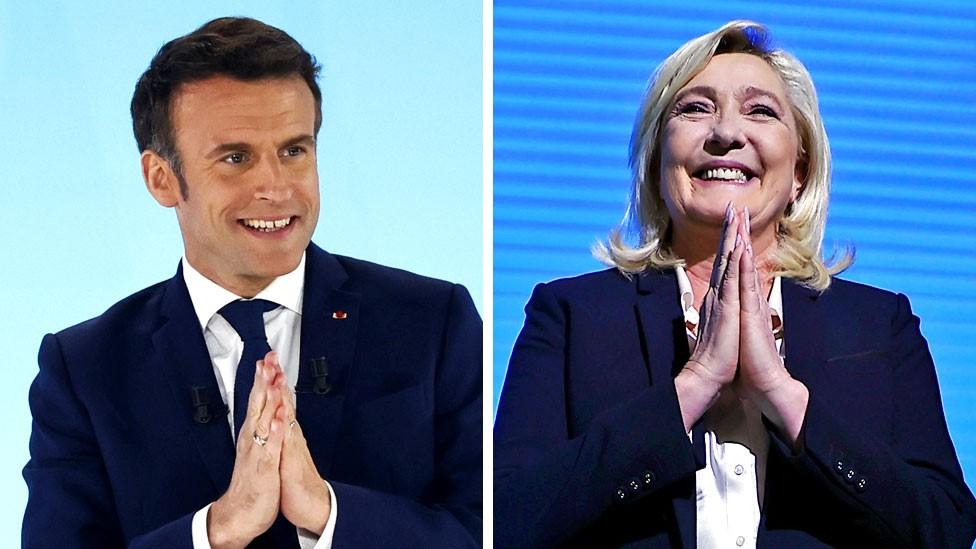French election: Le Pen angered by protest over ties to Putin
- Published
A woman protester was dragged across the floor as French presidential candidate Marine Le Pen spoke.
France's two rivals for the presidency have traded accusations after a woman was manhandled for protesting against far-right candidate Marine Le Pen's ties to Russia's Vladimir Putin.
The protester was dragged along the floor after she held up a heart-shaped sign showing Ms Le Pen meeting the Russian leader in 2017.
Hitting back at critics, Ms Le Pen said people should be outraged that election press conferences could be disrupted.
The vote will be held on 24 April.
Marine Le Pen, leader of the National Rally, came runner-up to Emmanuel Macron in the first round, held last Sunday, but opinion polls say she is only a few points behind the incumbent president in the race for the run-off.
Mr Macron has accused his rival of holding "authoritarian" views, belying the more moderate image she has maintained during the presidential campaign. He has previously condemned her policies as racist.
Ms Le Pen said on Thursday that France had never had a president who had exhibited as much authoritarianism as Mr Macron, because of his handling of yellow-vest protesters. She went on to say that if she became president there could be a referendum on bringing back the death penalty.
Row over Le Pen security men
However, it was the sight of a protester being dragged quickly out of a Le Pen press conference that prompted angry exchanges between the rival campaigns.
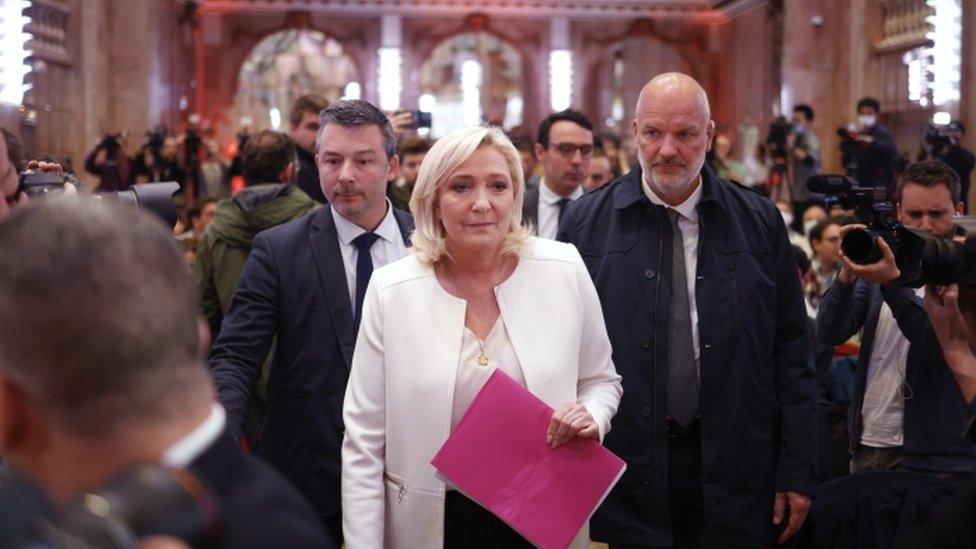
Marine Le Pen said people should be outraged that campaign events were being disrupted
The protester, later identified as a Green councillor, was seen being pulled to the floor by one man in a suit before another man pulled her out of the room by the arm.
Interior Minister Gérald Darmanin accused Ms Le Pen of wrongly blaming a police officer for what happened and called on her to apologise to the police: "Have the honesty to admit the individual who drags the protester along the floor is a member of your own security detail."
The far-right candidate refused to apologise and said the protester had been tackled by an interior ministry protection officer. "It was a policeman who challenged that woman and who got hurt in the process," she said. "He got injured while detaining her and couldn't complete the job of removing her."
While Ms Le Pen appeared to be talking about a man in a suit who initially bundled the protester to the ground, French media identified the man who dragged her out of the room as a member of the National Rally security team.
"What people should be outraged about is that we can't hold a second-round campaign without press conferences being disrupted, without us being attacked, without us being threatened," Ms Le Pen complained.
Le Pen banned from Ukraine
The incident highlighted the increasing animosity between the two campaigns, as opinion polls suggest a close race.
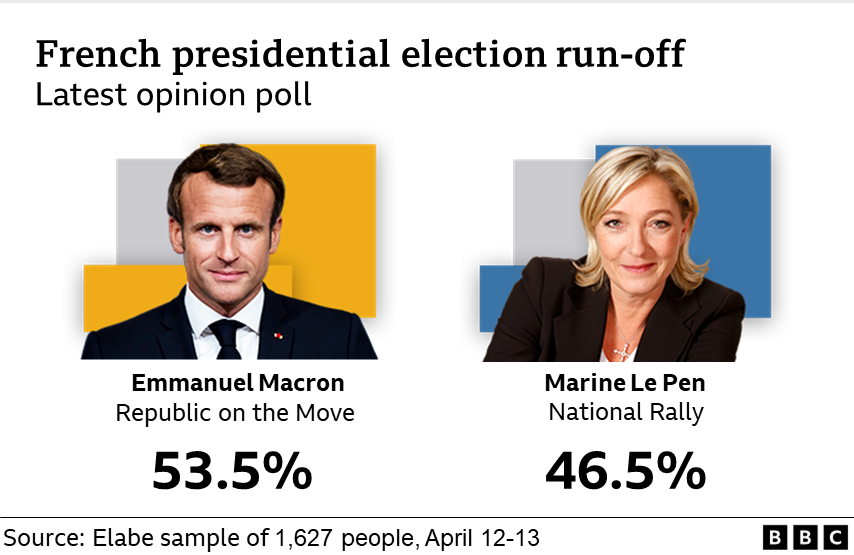

Ms Le Pen has tried to draw a veil over her links to Russia's authoritarian leader. She met Vladimir Putin ahead of her last presidential campaign in 2017, received Russian loans for her party and supported his illegal annexation of Crimea.
During a TV interview on Wednesday, she confirmed she had been banned from going to Ukraine and said she did not regret backing Russia's 2014 referendum, even though it was discredited internationally.
"There were no Ukrainian refugees from Crimea, because the inhabitants simply felt Russian, and they approved that Crimea should return to Russia," she said.
In a separate interview on Thursday, she said if Russia was found to be responsible for war crimes in Ukraine then it would obviously have to answer for them.
Meanwhile, Ukrainian President Volodymyr Zelensky has described as painful President Macron's refusal to term the murders of civilians in Ukraine as genocide, after US and Canadian leaders did so.
Macron spokesman Gabriel Attal made clear on Thursday that the French president had never said it was not genocide, just that the definition had to be made by international jurisdiction.
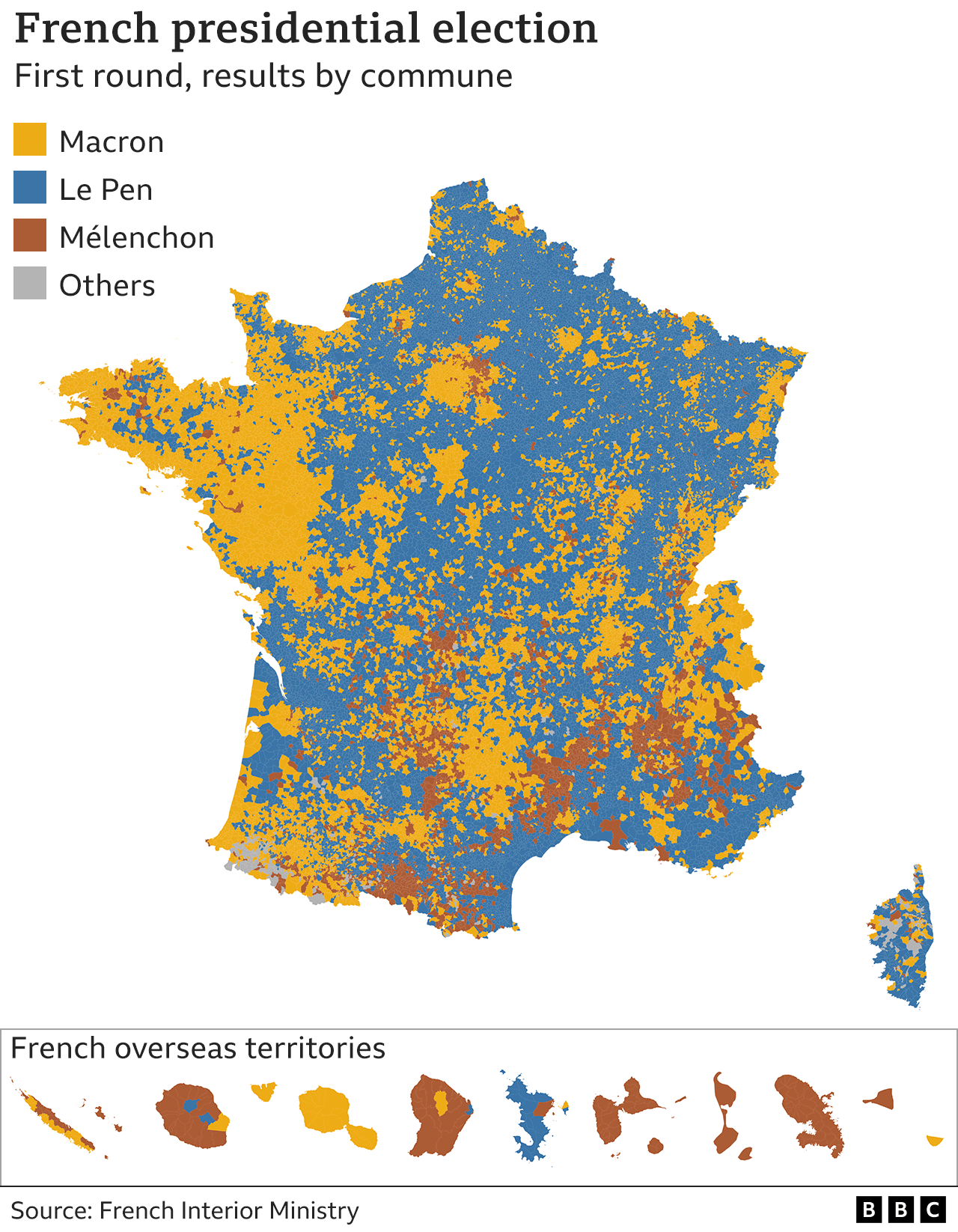

Related topics
- Published14 April 2022
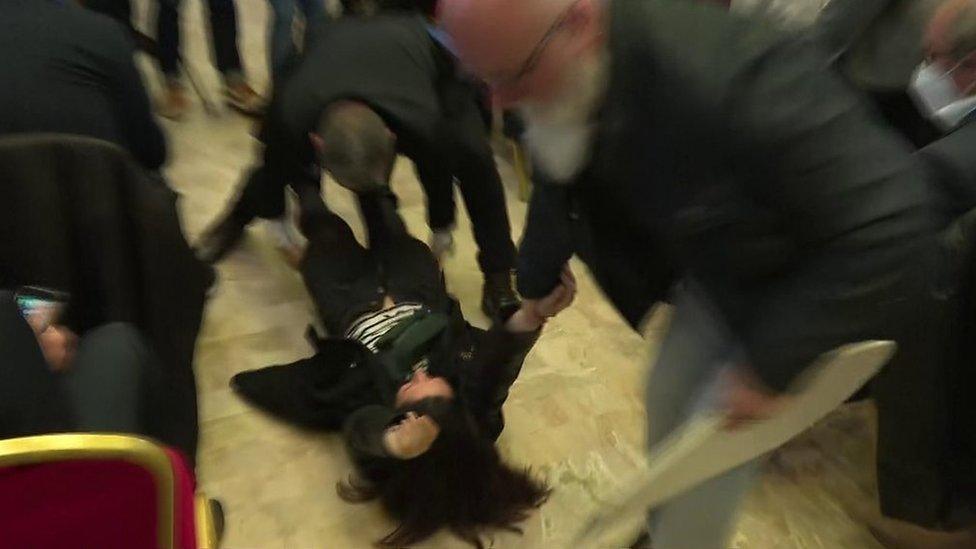
- Published11 April 2022
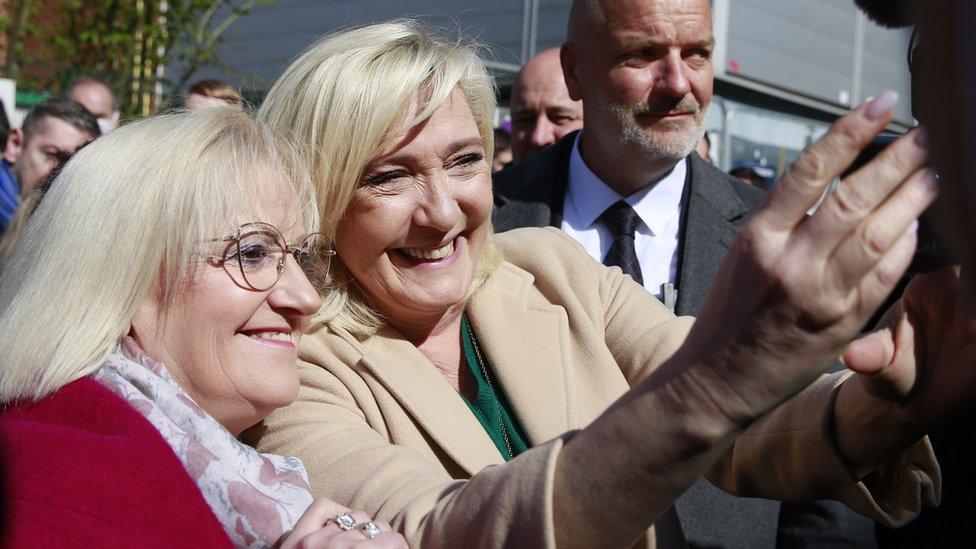
- Published14 April 2022
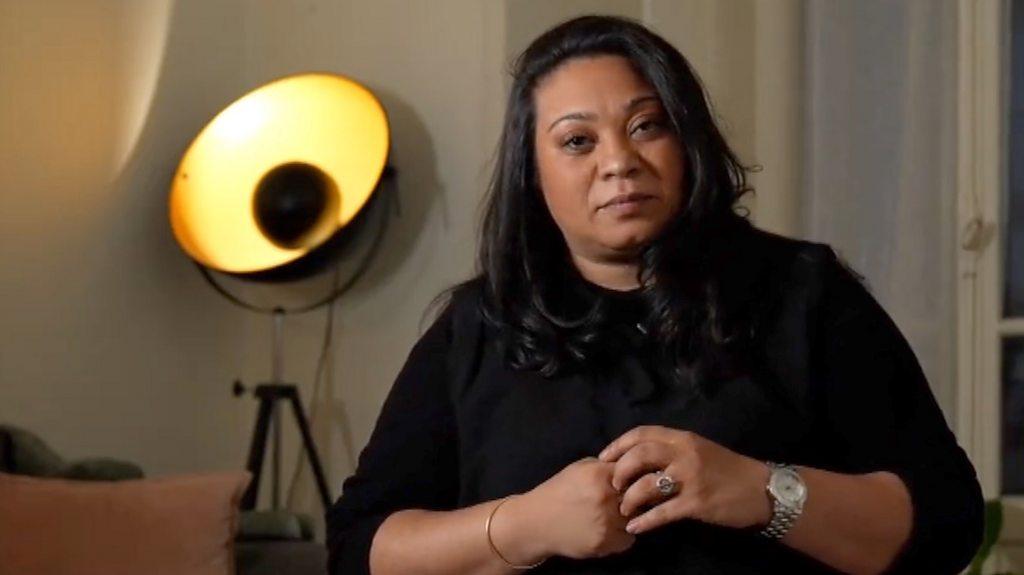
- Published11 April 2022
